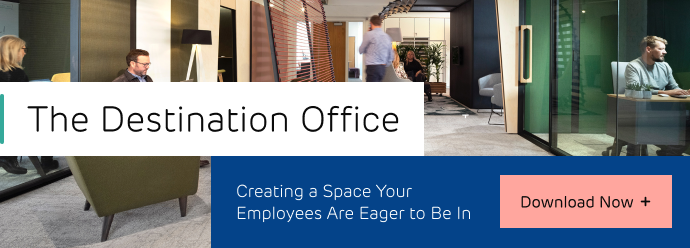Employees are demanding a better workplace experience, and their voices are louder than ever. Could turning the office into a destination that blends work and lifestyle be the answer?
Why enhancing the workplace experience is more important than ever
In the UK, more than three-quarters of employers offer hybrid working, allowing employees to split their time between the office and the home.
But not everyone wants to come back into the office. Research by Gensler suggests that many workspaces fail to cater to employees’ needs.
For example, they found that workers typically spend 34% of a typical week working alone, yet many offices don’t provide a quiet, focused space to get individual work done comfortably.
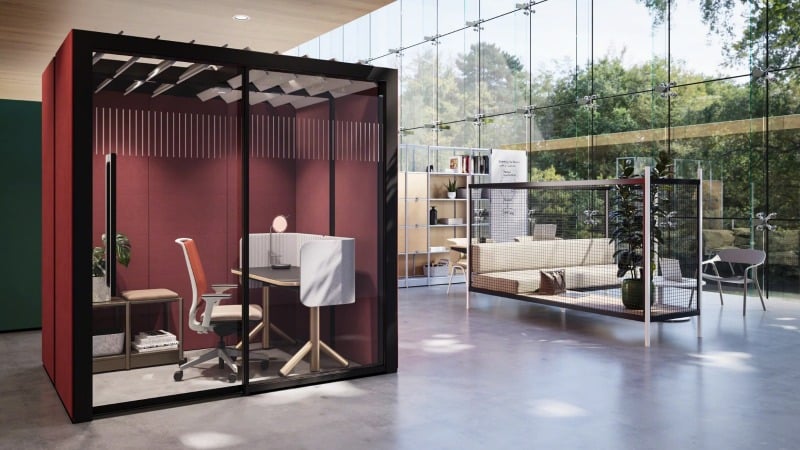
So why would they go to the office when they can get more done at home? Especially if it means having to sit on a train for two hours a day and missing out on moments to get the odd chore done during the day or the chance to collect their child from school.
However, we know that when people enjoy working from the office, it benefits both them and the business. As Steelcase research reveals:
People who enjoy working from the office are:
- 33% more engaged
- 30% more connected to the company culture
- 9% more productive
- 20% less likely to leave
By improving the working environment, organisations can encourage people back to the office, create a better workplace experience, and improve these outcomes.
That’s where the concept of the destination office comes in.
What is a destination office?
The destination office is an enticing space in which people are eager to work - a place they choose to be, rather than need to be.
The destination office is more than just a place to work, but a destination in itself. It offers a workplace experience where people feel valued, engaged, and a sense of belonging. It provides a sense of community, a strong culture and the flexibility for individuals to work in the way they choose.
People want to work there above anywhere else, because the workplace experience is unique and exceptional.
Why create a destination office?
In the short term, creating a destination office is about getting people excited about coming to work.
In the long term, it's about future-proofing your business. Amidst the war for talent, companies are increasingly seeing their workplace as a differentiation tool to help them attract and retain talent while also creating an environment that promotes effective working and collaboration whenever employees come to the office.
As Cushman & Wakefield write:
“As we no longer need to “go to work” to be working, today’s office buildings need to serve as unique destinations that motivate and inspire people to go into the office; to connect with likeminded people, learn new things, feel connected with the brand and culture of their company and increasingly have access to amenities and services that support their life and wellbeing at work.”
What are the key features of a destination office?
What the destination office looks like will vary depending on an organisation's goals, culture, and values. But key features usually include:
Workspaces to support all modes of work
The destination office must support all the ways that employees want to work. Most crucially, they need space for both individual work and collaboration:
- Designated workstations or quiet areas where employees can focus on tasks requiring deep concentration without distraction
- Collaborative spaces such as meeting rooms, booths, project spaces and open-plan areas that encourage employee interaction and knowledge sharing
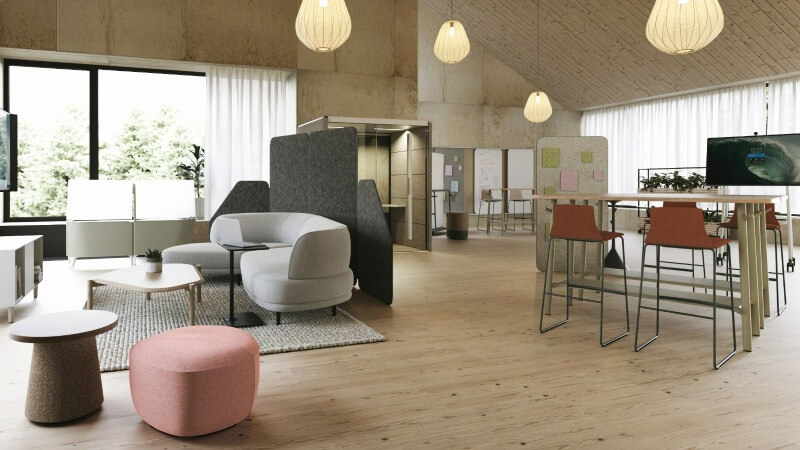
Amenities and services
Cafes, gyms, spaces to learn, connect and pursue hobbies, as well as on-site childcare and dry cleaning services, make the office a destination beyond just the workplace. It becomes a place that merges work and lifestyle.
By providing convenient amenities that can’t be easily replicated at home, the destination office provides a compelling reason for employees to travel and spend time in the workplace.
At 22 Bishopsgate, the largest commercial office development in London, amenities include a wellness studio with gym, fitness classes and meditation rooms, as well as a food market, fresh juice bar, and multiple gardens and outdoor terraces. The ‘mini-village’ provides a friendly neighbourhood setting that fosters connection and a sense of community.
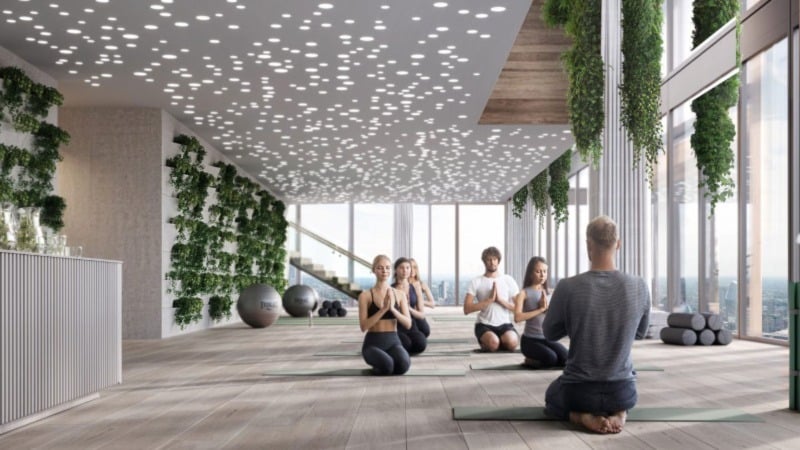
Image: The Retreat at 22 Bishopsgate
Social spaces
To help foster a sense of community and encourage social connections, the destination office should incorporate lounges, breakout areas and communal kitchens where employees can relax, socialise, and build relationships with their colleagues.
In addition, amenities like gym facilities, fitness classes or community gardens offer employees a space to connect on a personal level, outside of ‘work mode’.
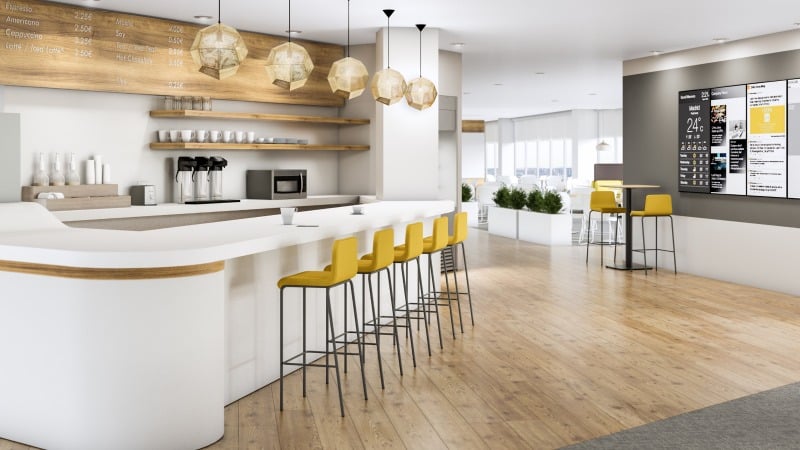
Inspiring design
The destination office should be immediately welcoming and create a motivational atmosphere for employees. So that every time they walk into the office, they are excited to be there and feel connected to the organisation’s purpose.
Think biophilic elements, comfortable furniture, warm colours, and artwork that reflects the company’s values and culture. Architecturally interesting pods and booths, enticing social spaces, help make it an exciting space for people.
Technology integration
The destination office should seamlessly integrate technologies to provide the best possible working experience. From smart office systems that allow workers to book a desk and control the lighting and temperature around them to high-speed internet connectivity and top-of-the-range video conferencing tools for flawless hybrid meetings.
Summary
Companies across the globe have shifted to a new era of hybrid work. But to encourage people to spend more time in the office, organisations need to transform their offices into enticing spaces that are worth the commute.
The concept of the destination office recognises that the workplace needs to be more than just a functional space but a space that blends work and lifestyle and adds value to people's lives.





